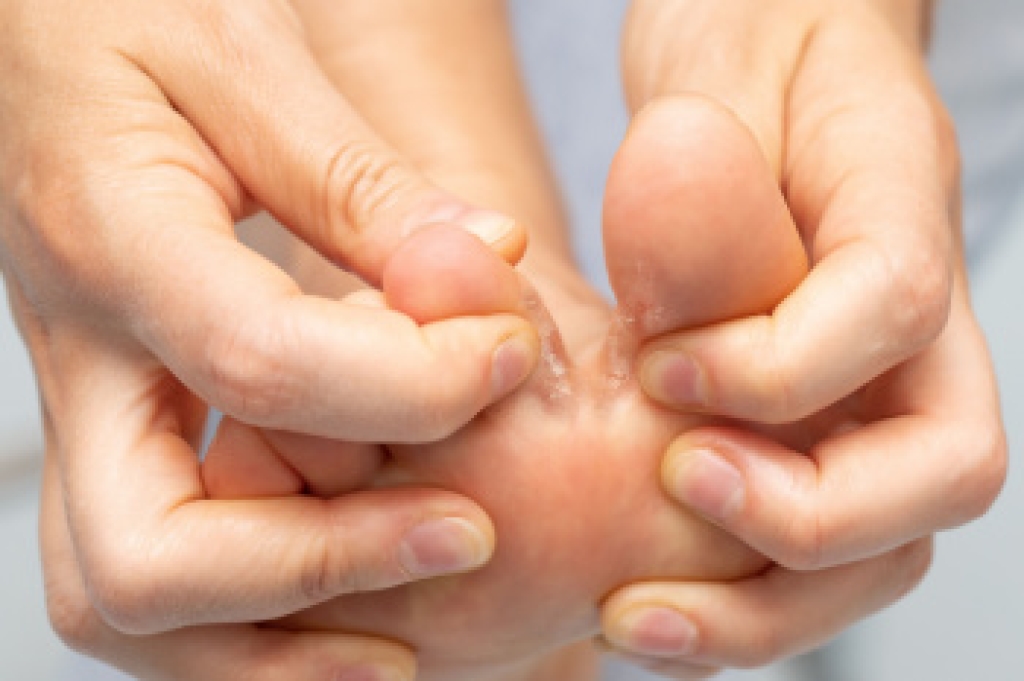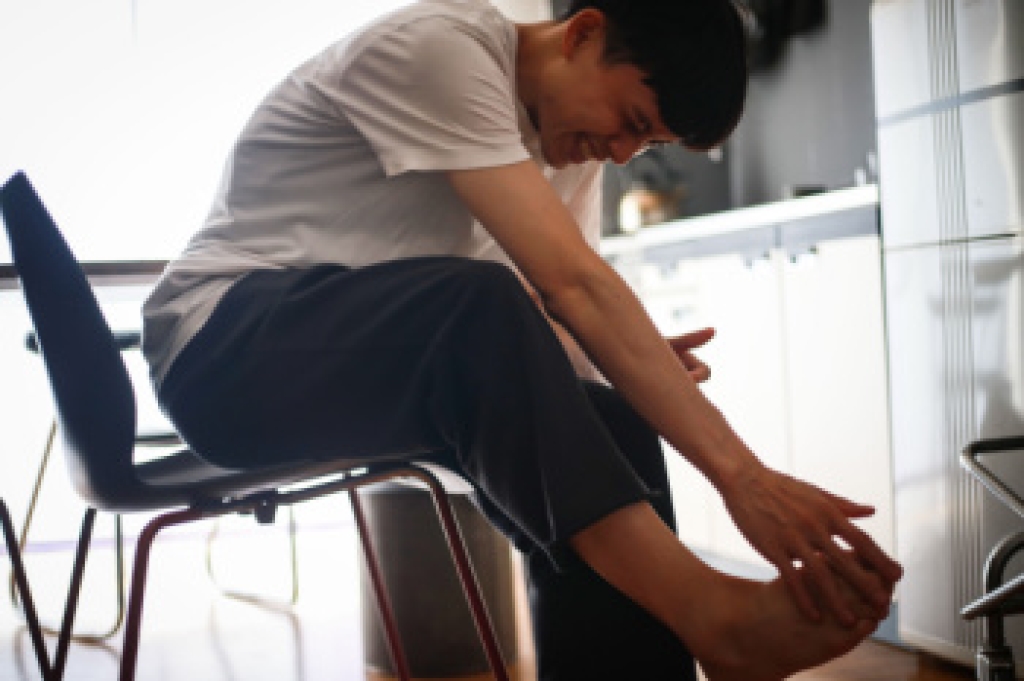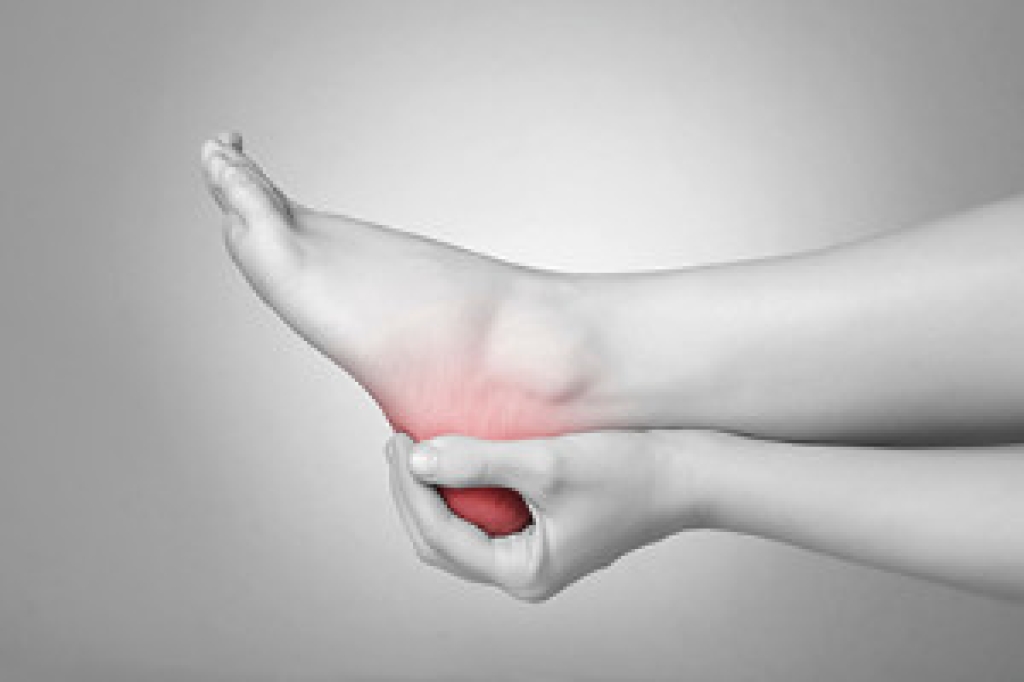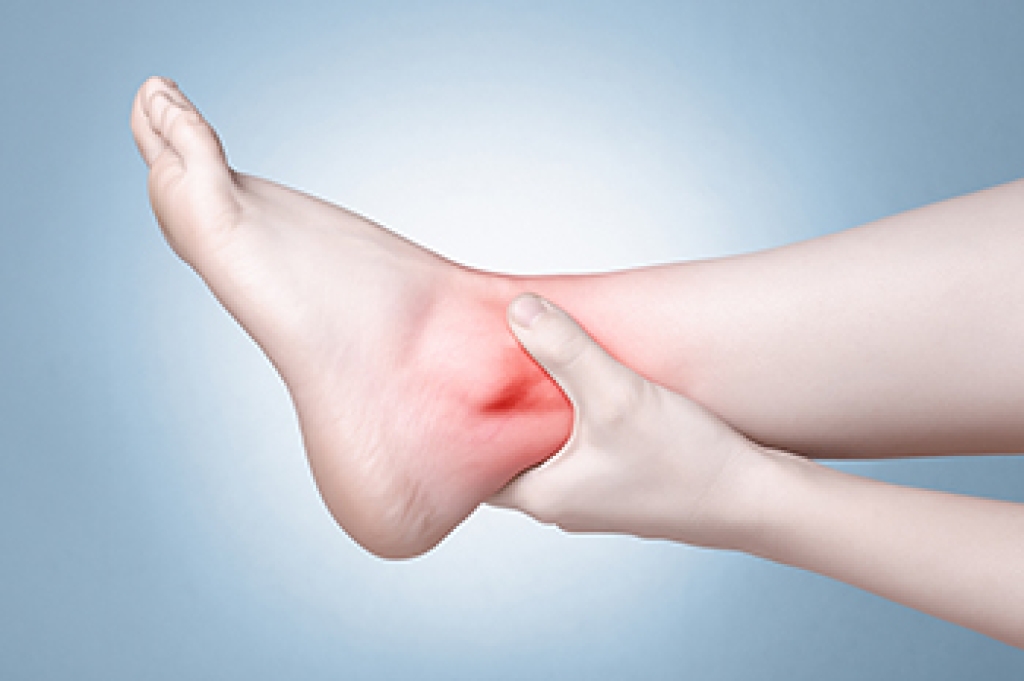
Athlete’s foot, also called tinea pedis, is a fungal infection that commonly affects the skin on the feet. It often begins between the toes, where moisture and warmth allow fungi to thrive. Symptoms of athlete’s foot include itching, redness, peeling, and a scaly buildup on the skin. In some cases, painful cracks or fluid-filled blisters may develop, and the soles of the feet thicken over time. Untreated athlete’s foot can lead to secondary bacterial infections, especially when skin breakdown occurs. People who wear tight shoes or frequently walk barefoot in communal areas, like locker rooms or showers, are more at risk. A podiatrist can examine the affected area and confirm the diagnosis, sometimes with a skin scraping for microscopic evaluation. Treatment includes antifungal medication applied directly to the feet, or, in some cases, taken orally. If you have symptoms of athlete's foot, it is suggested that you schedule an appointment with a podiatrist for an exam and appropriate treatment.
Athlete’s foot is an inconvenient condition that can be easily reduced with the proper treatment. If you have any concerns about your feet and ankles, contact Wendy K. Stinson, DPM from New Jersey. Our doctor will treat your foot and ankle needs.
Athlete’s Foot: The Sole Story
Athlete's foot, also known as tinea pedis, can be an extremely contagious foot infection. It is commonly contracted in public changing areas and bathrooms, dormitory style living quarters, around locker rooms and public swimming pools, or anywhere your feet often come into contact with other people.
Solutions to Combat Athlete’s Foot
- Hydrate your feet by using lotion
- Exfoliate
- Buff off nails
- Use of anti-fungal products
- Examine your feet and visit your doctor if any suspicious blisters or cuts develop
Athlete’s foot can cause many irritating symptoms such as dry and flaking skin, itching, and redness. Some more severe symptoms can include bleeding and cracked skin, intense itching and burning, and even pain when walking. In the worst cases, Athlete’s foot can cause blistering as well. Speak to your podiatrist for a better understanding of the different causes of Athlete’s foot, as well as help in determining which treatment options are best for you.
If you have any questions please feel free to contact our office located in Parsippany-Troy Hills, NJ . We offer the newest diagnostic and treatment technologies for all your foot and ankle needs.




